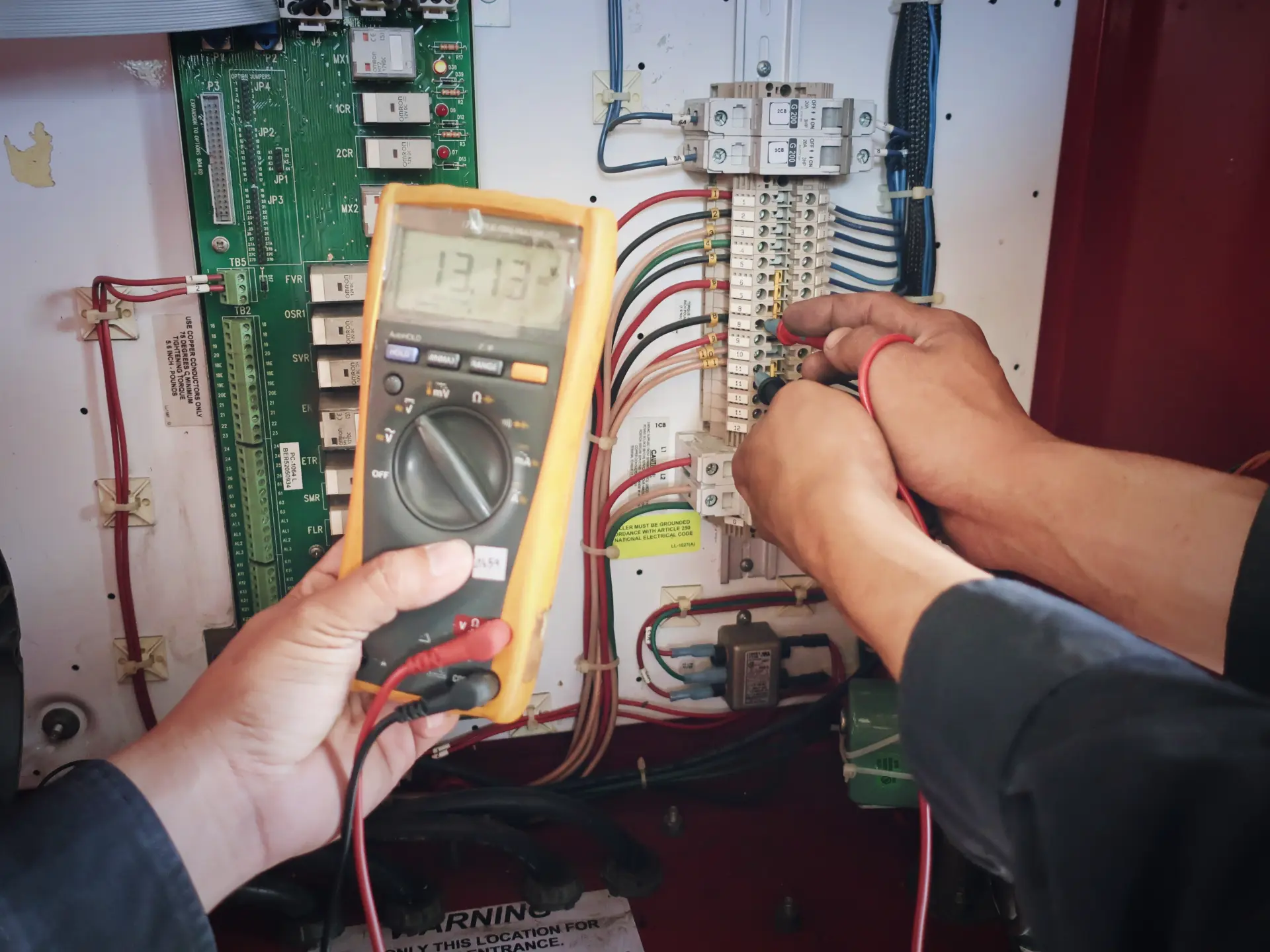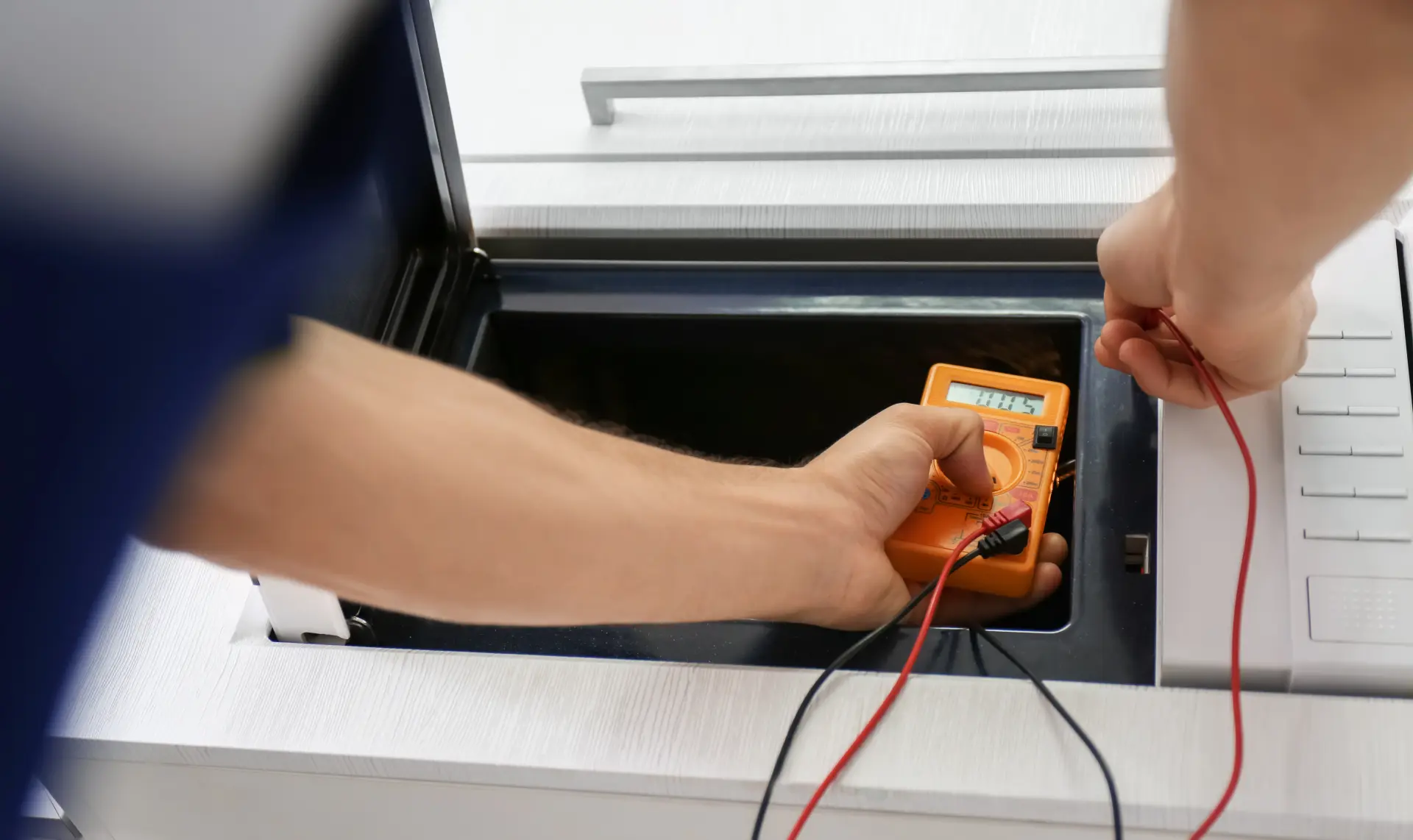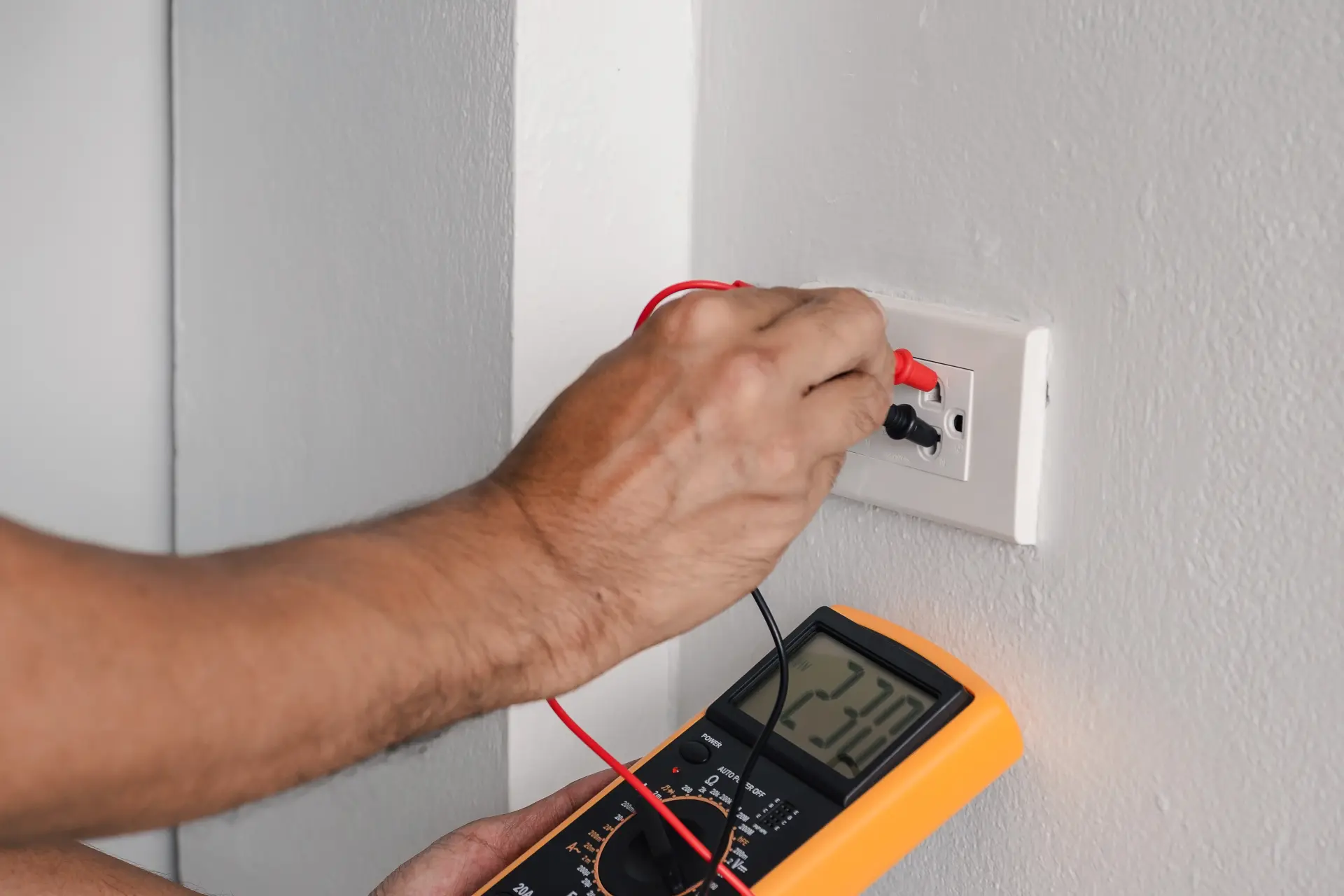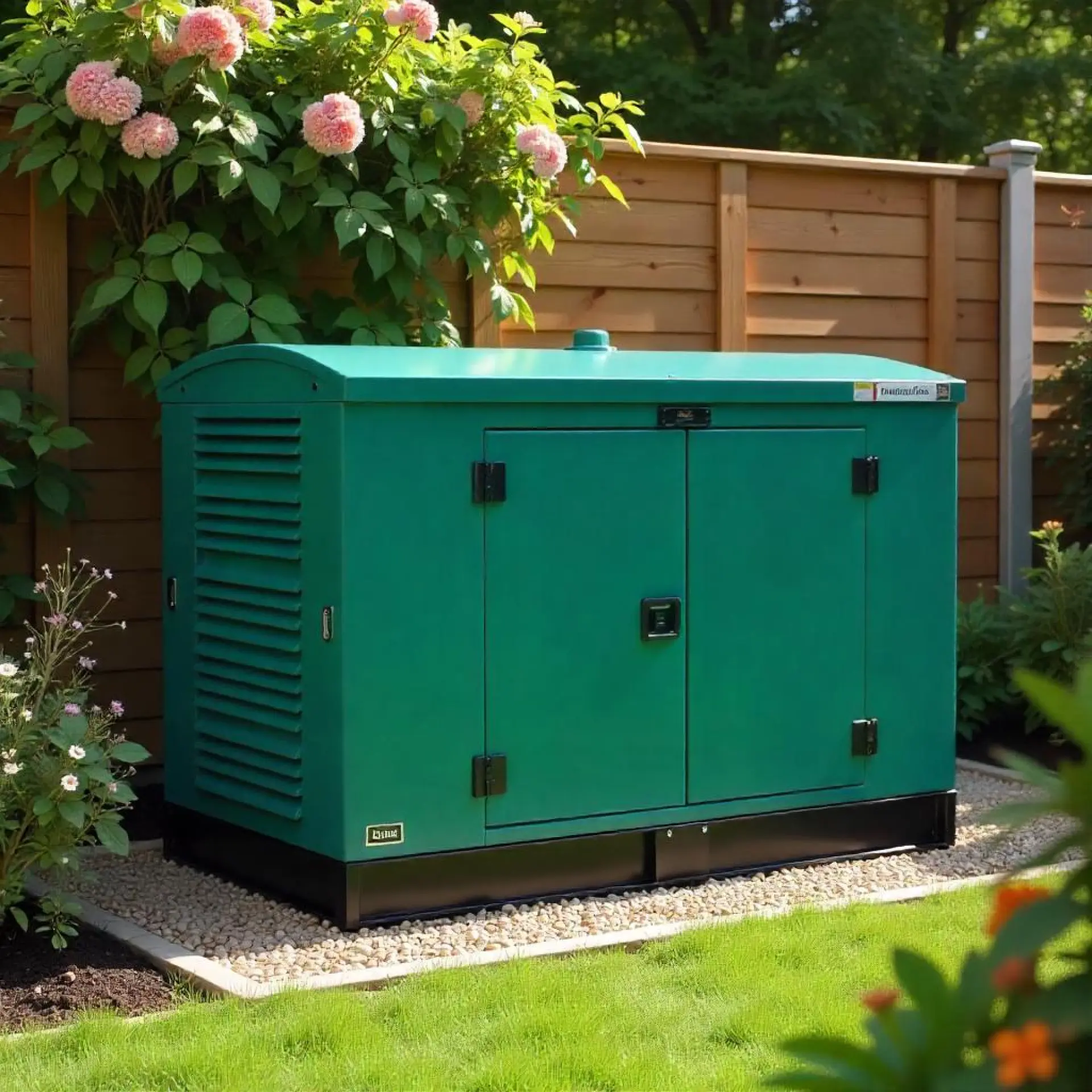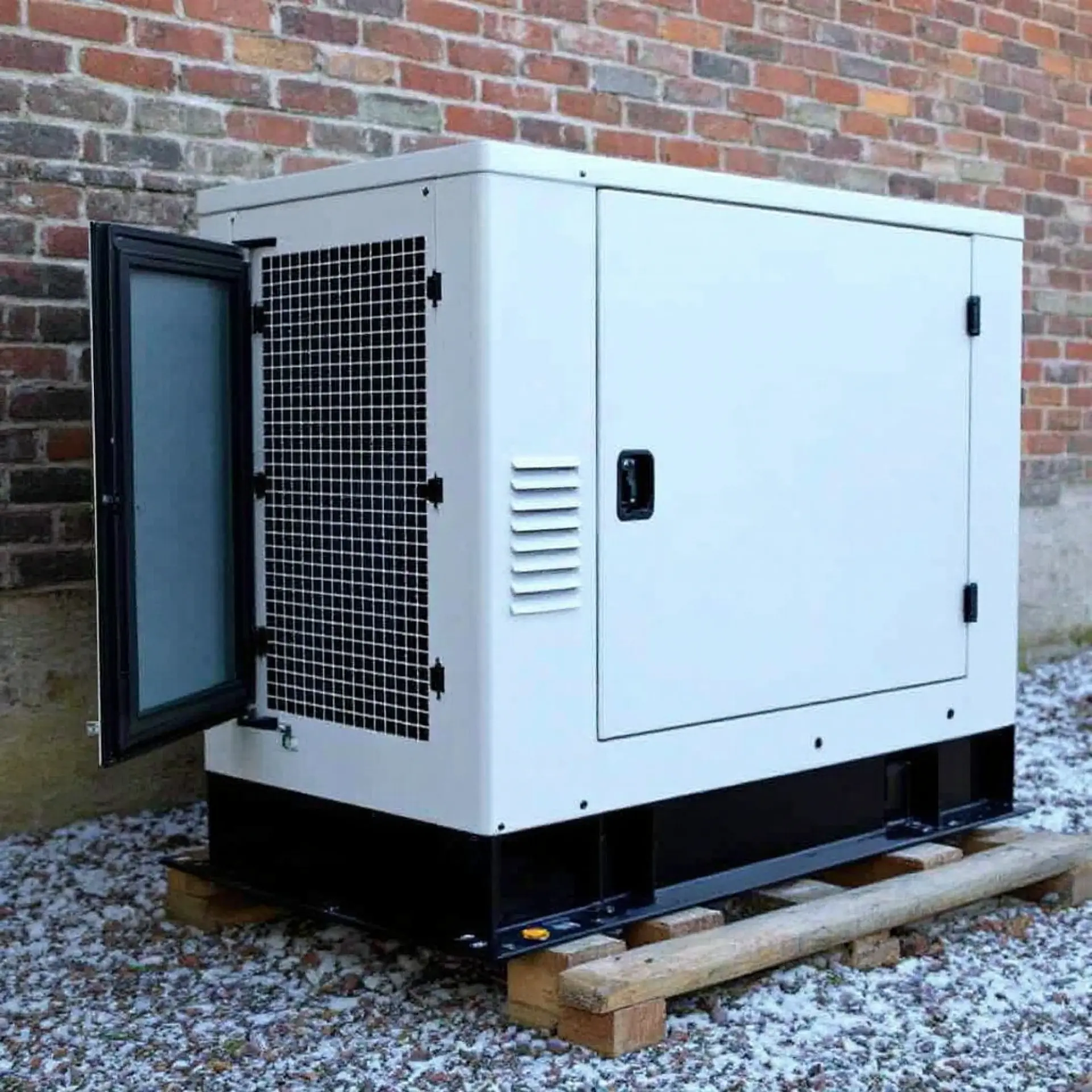Electrical testing is a key part of keeping your property safe. Whether it’s a home, business, or public building, making sure your electrics are in good condition helps to prevent risks like fires, electric shocks, and system failures.
Learn how often you should have electrical testing done for homes, rentals, and commercial premises. Stay safe and meet UK regulations with regular inspections.
What Is Electrical Testing?
Electrical testing is a detailed inspection carried out by a qualified electrician. It checks whether the electrical systems in your property are working properly and safely. During the inspection, the electrician will test wires, sockets, switches, fuse boxes, and other parts of the system. This helps make sure the installation meets UK safety standards and is not showing signs of damage, wear, or faults.
The results of the test are usually written in a report known as an Electrical Installation Condition Report (EICR). This report shows if your system is in good condition or if any work is required to fix problems.
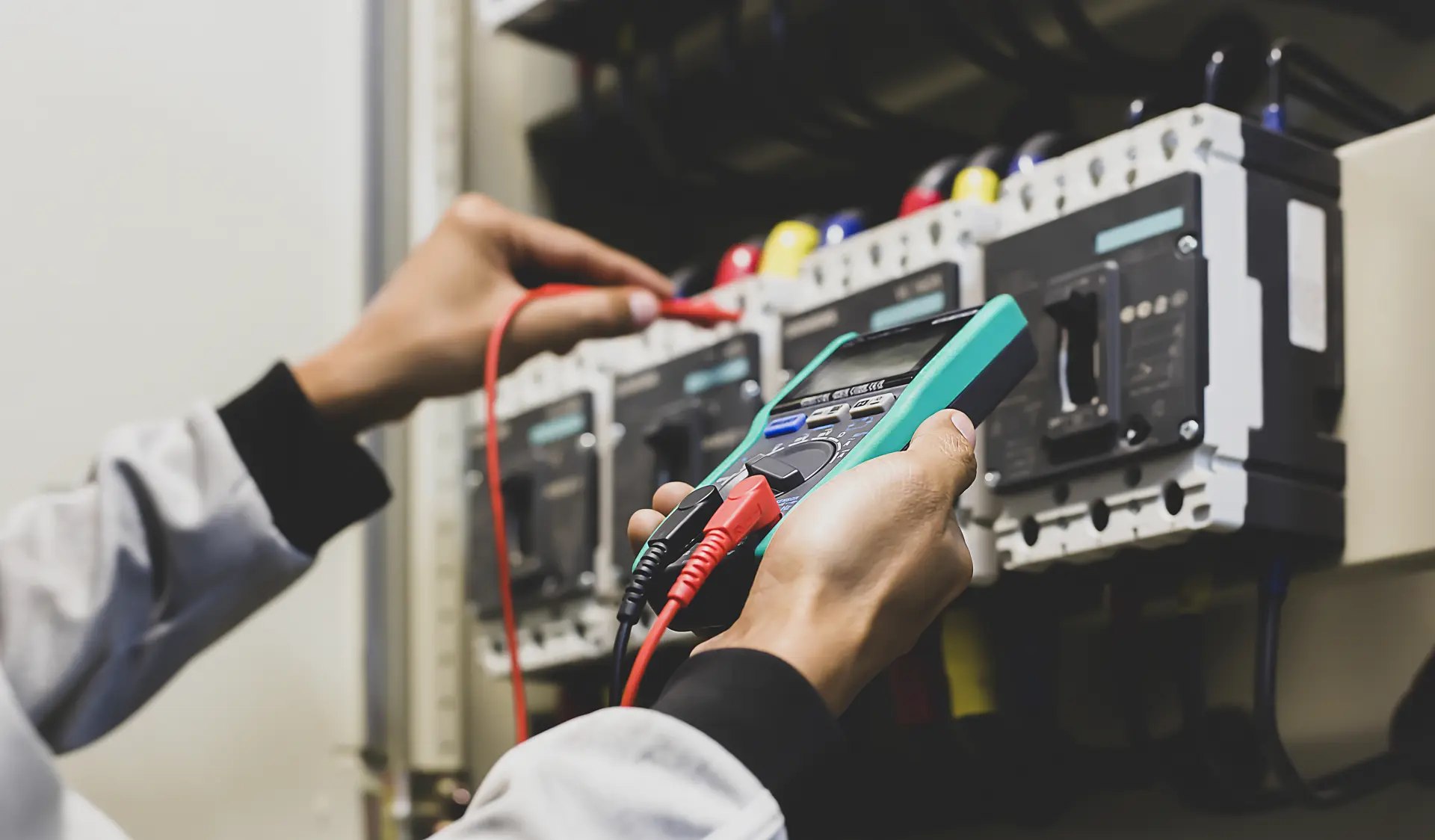
Why Regular Electrical Testing Matters
Over time, electrical systems can become unsafe without you realising. Wires can wear out, connections can loosen, and older systems may no longer meet modern standards. If these problems are not found early, they can cause serious risks such as fires, power cuts, and injury.
Regular testing helps to keep your system safe and avoid costly repairs in the future. It also gives peace of mind that your electrical system is working as it should. In many cases, testing is required by law to make sure homes and business premises remain safe and up to date with current regulations.
How Often Should You Test?
The frequency of electrical testing depends on the type of property and how it is used. Below is a guide to how often different properties should be tested:
- Private homes – every 10 years or when moving into a new home
- Rented properties – every 5 years or when tenants change
- Commercial premises – every 5 years, or more often depending on use
- Industrial sites – every 3 years
- Public buildings (such as schools or hospitals) – every 1 to 5 years, depending on the building’s condition and usage
If your property is older or used heavily, more frequent testing may be needed. Always check with a qualified electrician for advice based on your specific situation.
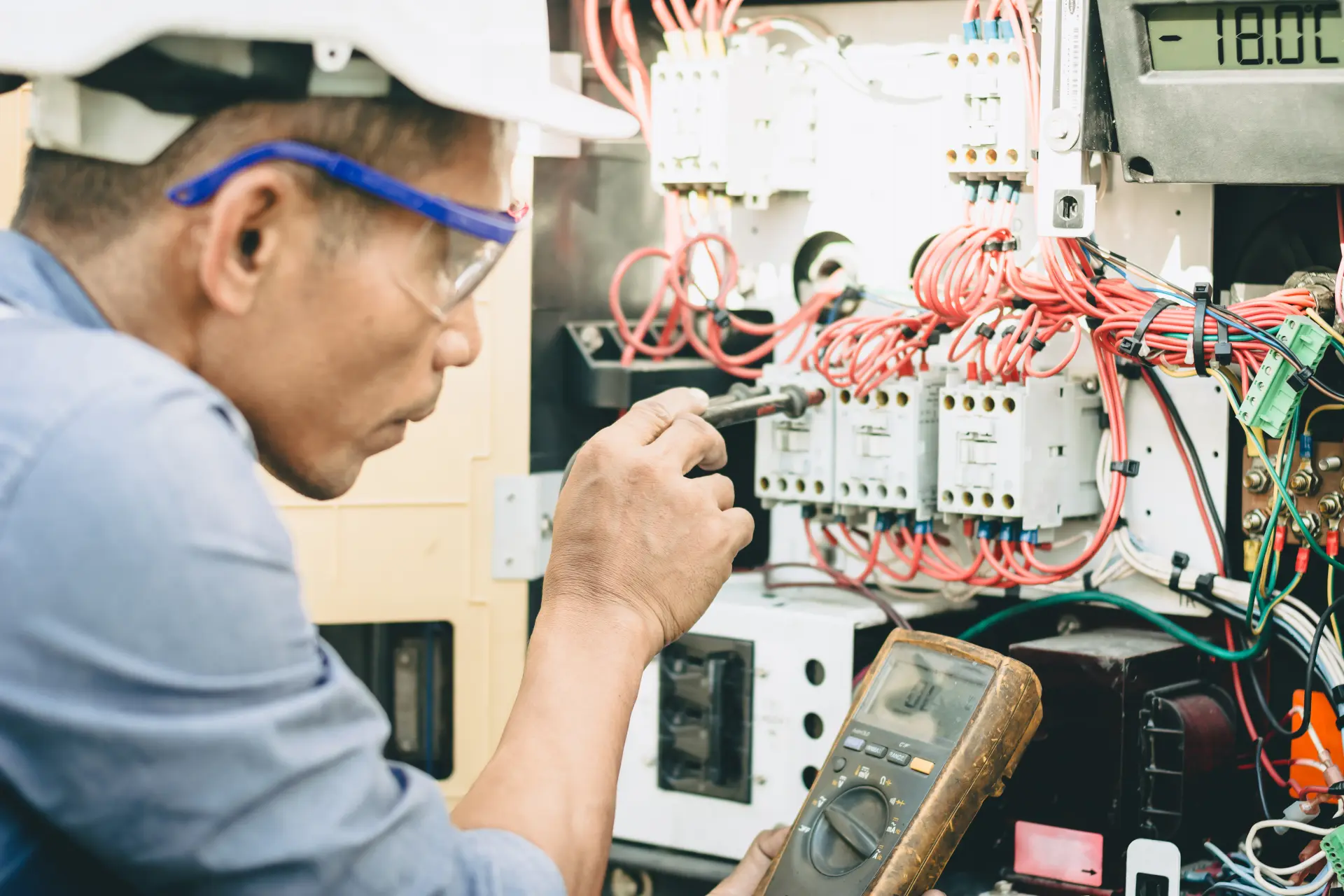
Signs That You May Need an Electrical Inspection
Even if your last test was recent, there are signs that could mean a new inspection is needed:
- Circuit breakers that trip regularly – this may mean there is a fault somewhere in the system
- Flickering lights – a common sign of loose wiring or other problems
- Burning smells – especially from sockets or switches, which may mean overheating
- Old or damaged wiring – wires that look frayed or cracked are unsafe
These signs should never be ignored. They suggest the condition of your system may no longer be safe, and a test should be carried out straight away.
Who Should Do the Testing?
All electrical testing must be carried out by a qualified and registered electrician. They will have the training, tools, and knowledge to carry out the inspection safely and correctly. Using a professional ensures the results are accurate and that any work needed can be completed to the correct standard.
The electrician will check all the parts of the system, record the findings, and let you know if any repairs or updates are needed. This keeps your property safe and helps meet all legal and safety requirements.
Need electrical testing in your home or business? Redwood Electrical Services provides expert electrical testing and inspection services across Woking, Guildford, Cobham and nearby areas. Our trained team carry out all required checks to keep your property safe and up to standard.

